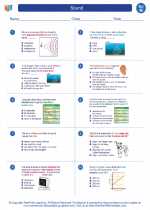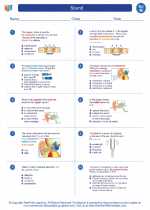Obstetrics
Obstetrics is the branch of medicine that deals with the care of women during pregnancy, childbirth, and the postpartum period. It is a crucial field of medicine that focuses on ensuring the health and well-being of both the mother and the baby throughout the entire process of pregnancy and childbirth.
Key Concepts in Obstetrics
- Prenatal Care: This involves regular check-ups, screenings, and counseling to ensure the health of the mother and the developing fetus.
- Labor and Delivery: The process of childbirth, including monitoring the progression of labor, managing pain, and ensuring a safe delivery.
- Postpartum Care: Care provided to the mother after childbirth, including monitoring for any complications and providing support for breastfeeding and recovery.
- High-Risk Obstetrics: Managing pregnancies with complications such as pre-eclampsia, gestational diabetes, or multiple pregnancies.
- Ultrasound and Imaging: Using advanced imaging techniques to monitor the development of the fetus and detect any abnormalities.
- Obstetric Surgery: In cases of complications, obstetricians may perform cesarean sections or other surgical procedures to ensure the safety of the mother and baby.
Study Guide for Obstetrics
When studying obstetrics, it's important to familiarize yourself with the anatomy and physiology of the female reproductive system, the stages of pregnancy, common complications, and medical interventions. Here are some key topics to focus on:
- Anatomy and Physiology: Understand the structures of the female reproductive system, including the ovaries, fallopian tubes, uterus, and cervix. Learn about the hormonal changes that occur during pregnancy and their effects on the body.
- Stages of Pregnancy: Study the three trimesters of pregnancy, including the development of the fetus, changes in the mother's body, and the milestones of each trimester.
- Common Complications: Familiarize yourself with conditions such as pre-eclampsia, gestational diabetes, placenta previa, and fetal distress. Understand their causes, symptoms, and potential treatments.
- Medical Interventions: Learn about prenatal screenings, ultrasound imaging, labor induction methods, pain management during childbirth, and techniques for neonatal resuscitation.
- Postpartum Care: Understand the physical and emotional changes that occur in the mother after childbirth, including breastfeeding challenges, postpartum depression, and the importance of postnatal check-ups.
- Ethical and Legal Issues: Explore the ethical considerations in obstetrics, including informed consent, patient autonomy, and the legal responsibilities of healthcare providers in obstetric care.
By mastering these key concepts and topics, you will have a solid foundation in obstetrics and be well-prepared to understand and address the complex medical and emotional needs of pregnant women and their babies.
.







